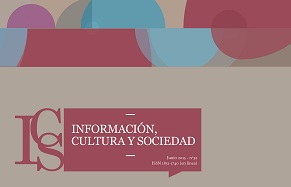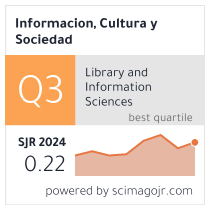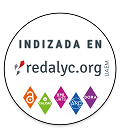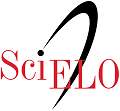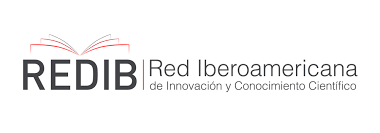Disinformation y Misinformation, Posverdad y Fake News: precisiones conceptuales, diferencias, similitudes y yuxtaposiciones
Resumen
A través de la revisión documental, con base al enfoque cualitativo e interpretativo, el presente trabajo pretende realizar un recuento de los principales términos utilizados actualmente en el manejo de la información: disinformation, misinformation, posverdad y fakenews. Términos que evidencian la relevancia que ha adquirido la información obtenida a través de las redes sociales y que, en consecuencia, generan un desorden informativo. Esto es posible debido al crecimiento exponencial de la información en un entorno supeditado al desarrollo de las tecnologías de la información y comunicación (TIC), donde constantemente se pone en tela de juicio su veracidad y como resultado se pierde su valor y se hace cada vez más difícil la elección de información veraz y correcta. Los resultados permiten realizar precisiones conceptuales, identificar las relaciones existentes de similitud, diferencias y yuxtaposición en cada uno de los términos que han surgido en este contexto con algunos ejemplos.Descargas
Citas
Alexander, James y Jonathan Smith. 2011. Disinformation: A taxonomy. En IEEE Security & Privacy. Vol. 9, no.1, 58-63. <https://doi.org/10.1109/MSP.2010.141>
Bradbury, Ray. 1953. Fahrenheit 451. New York: Ballantine Books.
Brenner, Joseph E. 2010. A Logic of Ethical Information. En Knowledge, Technology & Policy. Vol. 23, no. 1-2, 109-133. <https://doi.org/10.1007/s12130-010-9099-3>
Britz, Johannes J. 2008. Making the global information society good: A social justice perspective on the ethical dimensions of the global information society. En Journal of the American Society for Information Science and Technology. Vol. 59, no. 7, 1171-1183. <https://doi.org/10.1002/asi.20848>
Byron, Michael. 2010. Floridi's Fourth Revolution and the Demise of Ethics. En Knowledge, Technology & Policy. Vol. 23, no. 1-2, 135-147. <https://doi.org/10.1007/s12130-010-9103-y>
Cambridge Dictionary. 2018. Misinformation. <https://dictionary.cambridge.org/es/diccionario/ingles/misinformation> [Consulta: 11 diciembre 2018].
Carbo, Toni y Stephen Almagno. 2001. Information ethics: The duty, privilege and challenge of educating information professionals. En Library Trends. Vol. 49, no. 3, 510-518. <http://hdl.handle.net/2142/8351> [Consulta: 23 setiembre 2018].
Carlson, Matt. 2020. Fake news as an informational moral panic: the symbolic deviancy of social media during the 2016 US presidential election. En Information, Communication & Society. Vol. 23, no. 3, 374-388. <https://doi.org/10.1080/1369118X.2018.1505934>
Cooke, Nicole A. 2017. Posttruth, Truthiness, and Alternative Facts: Information Behavior and Critical Information Consumption for a New Age. En The Library Quarterly. Vol. 87, no. 3, 211-221. <https://doi.org/10.1086/692298>
Del-Fresno-García, Miguel. 2019. Desórdenes informativos: sobreexpuestos e infrainformados en la era de la posverdad. En El profesional de la información. Vol. 28, no. 3, 1-11. <https://doi.org/10.3145/epi.2019.may.02>
Doomen, Jasper. 2009. Information Inflation. En Journal of Information Ethics. Vol. 18, no. 2, 27-37. <https://doi.org/10.3172/JIE.18.2.27>
Durandin, Guy. 1983. La mentira en la propaganda política y en la publicidad. Barcelona: Paidós.
Durandin, Guy. 1995. La información, la desinformación y la realidad. Barcelona: Paidós.
Estrada-Cuzcano, Alonso y Valeria Saavedra-Vásquez. 2018. The Legal and Ethical Basis of Intellectual Freedom. En Journal of Information Ethics. Vol. 27, no. 1, 31-42.
Fallis, Don. 2014. Epistemic Values and Disinformation. En Fairweather, Abrol, ed. Virtue Epistemology Naturalized: Bridges Between Virtue Epistemology and Philosophy of Science. Cham: Springer International Publishing. p. 159-179. <https://doi.org/10.1007/978-3-319-04672-3_10>
Fallis, Don. 2015. What Is Disinformation? En Library Trends. Vol. 63, no. 3, 401-426. <https://doi.org/10.1353/lib.2015.0014>
Fallis, Don. 2016. Mis- and dis-information. En Floridi, Luciano, ed. The Routledge Handbook of Philosophy of Information. Oxfordshire: Routledge. p. 332-346. <https://doi.org/10.4324/9781315757544.ch27>
Fetzer, James H. 2004a. Disinformation: The use of false information. En Minds and Machines. Vol. 14, no. 2, 231-240. <https://doi.org/10.1023/B:MIND.0000021683.28604.5b>
Fetzer, James H. 2004b. Information: Does it have to be true? En Minds and Machines. Vol. 14, no. 2, 223-229. <https://doi.org/10.1023/B:MIND.0000021682.61365.56>
Filloux, Frederic. 2018. Fighting fake news is a losing battle, but there are other ways to win the war. En Monday Note. 6 de agosto 2018. <https://mondaynote.com/fighting-fake-news-is-a-losing-battle-but-there-are-other-ways-to-win-the-war-1991ed877478> [Consulta: 12 enero 2019].
Floridi, Luciano. 2006. Ética de la información: su naturaleza y alcance. En Isegoría. No. 34, 19-46. <https://doi.org/10.3989/isegoria.2006.i34.2>
Floridi, Luciano y Mariarosaria Taddeo. 2016. What is data ethics? En Philosophical Transactions of the Royal Society A: Mathematical, Physical and Engineering Sciences. Vol. 374, no. 2083, 1-5. <https://doi.org/10.1098/rsta.2016.0360>
Goldmann, Lucien. 1966. Importancia del concepto de conciencia posible para la comunicación. En Coloquios Royaumont. El concepto de la información en la ciencia contemporánea. México, D.F.: Siglo XXI. p. 31-41.
Habgood-Coote, Joshua. 2018. Stop talking about fake news! En Inquiry. Vol. 62, no. 9-10, 1-33. <https://doi.org/10.1080/0020174X.2018.1508363>
Hofkirchner, Wolfgang. 2010. How to Design the Infosphere: the Fourth Revolution, the Management of the Life Cycle of Information, and Information Ethics as a Macroethics. En Knowledge, Technology, & Policy. Vol. 23, no. 1-2, 177-192. <http://dx.doi.org/10.1007/s12130-010-9108-6>
Hongladarom, Soraj. 2008. Floridi and Spinoza on global information ethics. En Ethics and Information Technology. Vol. 10, no. 2-3, 175-187. <http://dx.doi.org/10.1007/s10676-008-9164-8>
Howlett Spence, Edward. 2010. The normative structure of information and its communication. En Journal of Information, Communication and Ethics in Society. Vol. 8, no. 2, 150-163. <http://dx.doi.org/10.1108/14779961011040569>
Morales Campos, Estela. 2018. Desinformación en la Sociedad de la Información y el Conocimiento. En Morales Campos, Estela, ed. La posverdad y las noticias falsas: el uso ético de la información. México, D.F.: UNAM, Instituto de Investigaciones Bibliotecológicas y de la Información.
Nogués, Guadalupe. 2018. Creencias y emociones ¿Cómo nos afectan las emociones a la hora de interpretar los hechos? En Nogués, Guadalupe, ed. Pensar con Otros: Una guía de supervivencia en tiempos de posverdad. Buenos Aires: El Gato y La Caja. <https://elgatoylacaja.com.ar/pensar-con-otros/capitulo-5/> [Consulta: 15 marzo 2020].
Orwell, George. 2016. 1984. México, D.F.: Tomo.
Oxford-Dictionaries. 2016. Oxford Dictionaries Word of the Year 2016 is… <https://en.oxforddictionaries.com/word-of-the-year/word-of-the-year-2016> [Consulta: 22 diciembre 2018].
RAE. 2016. Diccionario de la lengua española. 23a. <http://dle.rae.es/> [Consulta: 22 diciembre 2018].
Ranganathan, Shiyali Ramamrita. 1931. The five laws of library science. Madras: Madras Library Association; Londres: Edward Goldston.
Stahl, Bernd Carsten. 2008. Discourses on information ethics: The claim to universality. En Ethics and Information Technology. Vol. 10, no. 2-3, 97-108. <https://doi.org/10.1007/s10676-008-9171-9>
Tandoc, Edson C., Zheng Wei Lim y Richard Ling. 2018. Defining "Fake News". En Digital Journalism. Vol. 6, no. 2, 137-153. <https://doi.org/10.1080/21670811.2017.1360143>
Turilli, Matteo y Luciano Floridi. 2009. The ethics of information transparency. En Ethics and Information Technology. Vol. 11, no. 2, 105-112. <https://doi.org/10.1007/s10676-009-9187-9>
Van der Veer Martens, Betsy. 2015. An Illustrated Introduction to the Infosphere. En Library Trends. Vol. 63, no. 3, 317-361. <https://doi.org/110.1353/lib.2015.0006>
Wardle, Claire y Hossein Derakhshan. 2017. Information Disorder: Toward an interdisciplinary framework for research and policy making. Strasbourg: Council of Europe. <https://rm.coe.int/information-disorder-toward-an-interdisciplinary-framework-for-researc/168076277c> [Consulta: 17 noviembre 2018].
Zarzalejos, José Antonio. 2017. Comunicación, periodismo y 'fact-checking'. En Uno. No. 27, 11-13. <http://www.revista-uno.com/wp-content/uploads/2017/03/UNO_27.pdf> [Consulta: 29 noviembre 2018].
Los autores/as que publiquen en esta revista aceptan las siguientes condiciones:
- Los autores/as conservan los derechos de autor y ceden a la revista el derecho de la primera publicación, con el trabajo registrado con la Licencia Creative Commons Atribución-CompartirIgual 4.0 Internacional, que permite a terceros utilizar lo publicado siempre que mencionen la autoría del trabajo y a la primera publicación en esta revista.
- Los autores/as pueden realizar otros acuerdos contractuales independientes y adicionales para la distribución no exclusiva de la versión del artículo publicado en esta revista (p. ej., incluirlo en un repositorio institucional o publicarlo en un libro) siempre que indiquen claramente que el trabajo se publicó por primera vez en esta revista.
- Se permite y recomienda a los autores/as a publicar su trabajo en Internet (por ejemplo en páginas institucionales o personales).
